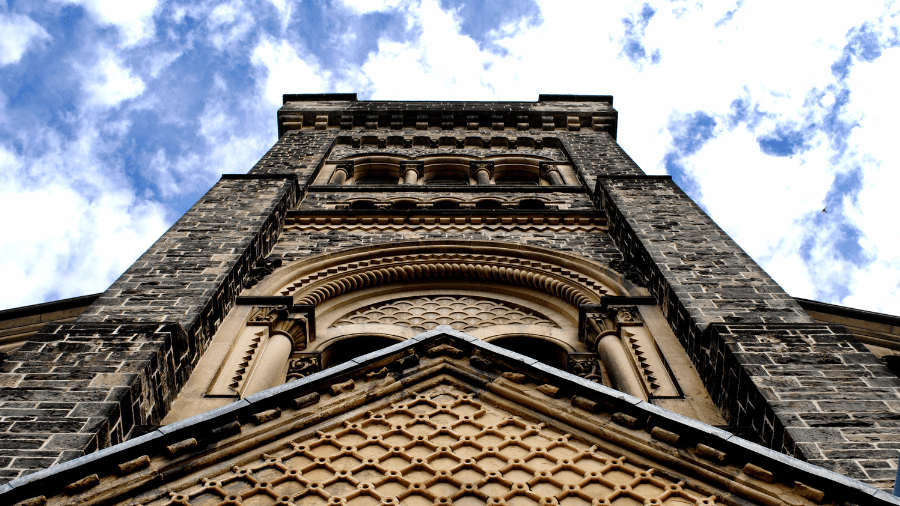This article originally appeared in the Hub.
By Aaron Wudrick, David Livingstone, and David Tabachnick, May 1, 2024
Our institutions of higher education are once again front and centre in the news as increasingly illiberal “Freedom Palestine” protests roil campuses across North America.
These events, however, are merely the latest expression of deeper compounding problems. Our universities are in serious trouble—and that’s bad news for our society overall.
It is worth examining how we got here. In much of Canada, the post-secondary sector faces a grim financial crisis. Consider a decades-long lack of meaningful public investment, recent cuts to international students, stingy performance-based funding models, and tuition freezes, and you can understand why colleges and universities are struggling even as enrolment has skyrocketed.
It might seem that conservative governments are particularly hostile to the academy. Arguably, growing concerns about free speech on campus, diversity, equity, and inclusion programs, and left-leaning professoriates and administrations have led Ontario to provide the lowest per-student funding in Canada, while Alberta has reduced funding by 31 percent in real terms between 2019 and 2024.
While there may be no love lost between the premiers of these provinces and universities, there has been a significant shift away from public support, regardless of which party is in power. As Alex Usher, a higher education consultant, puts it, “The long-term picture (of the post-secondary sector) in Canada is thus a story of firmly pan-partisan public neglect.”
Not surprisingly, university administrators have called for new investments. But more public funding will not solve a much deeper problem.
Writing 30 years ago in their seminal work, Bankrupt Education, political philosophers Peter Emberley and Waller Newell warned that “massive new infusions of public money into the universities will do no good at all unless they are preceded by a spiritual reawakening of the university’s dedication to liberal education and its responsibility for helping to shape thoughtful and responsible citizens.”
Sadly, we remain unawake. Liberal education has further declined as we emphasize science, technology, engineering, and mathematics programs and vocational training. While obviously important for the economy, these kinds of education have almost nothing to say about our responsibilities as citizens.
This decline also relates to a larger, almost silent crisis gripping Canada. A new study from Abacus Data concludes that about four in 10 Canadian adults don’t recall learning anything in school about current events, how governments work, or their roles as citizens, and only one in 10 were taught how to discuss controversial issues. These poor outcomes help to explain the sudden ill-health of our democracy, and the growing inability of Canadians to engage in civil discussion about politics with friends, family, and neighbours.
Unfortunately, the humanities and social sciences, which are the traditional homes for this education, have drifted from their core mandates, jeopardizing liberal democracy rather than exploring its deep philosophical roots, celebrating its strengths, and shoring up its deficiencies.
Conservatives in particular—who are supposed to value the accumulated wisdom of those who came before us—should be among the most concerned. And, if ordered liberty remains at the core of contemporary conservatism, conservatives should be among the loudest voices promoting the revival of liberal education.
All is not lost. Several universities in the United States are now restoring these traditional approaches. Canadian universities should pay attention.
In 2017, for example, Purdue University launched the Cornerstone Certificate to develop their students’ communication and creative thinking skills. As the program notes: “The impact on a society that devalues a liberal education is a frightening one. It raises a specter of generations of adults who have lost their sense of the past, their civic responsibilities, and any shared vision for the future.”
Insofar as conservatives in Canada have neglected to pressure universities to stay true to the mission of educating all citizens to a life of independent thinking and civic responsibility, they have surrendered higher education to forces that are either indifferent to the questions of liberal-democratic civic education or, more alarmingly, overtly hostile to it.
So, instead of wringing their hands about leftist agendas on campus, conservatives in Canada should realize that efforts to drive efficiencies through the system or narrow the mandate of the universities to serve the labour market are undermining one of the pillars of conservatism.
Many people are worried about illiberal trends in our political culture. But those of us who have championed genuine liberal education for many years are disappointed but not surprised by what Canada has become.
After all, if you remove the one form of education that has been dedicated to educating free individuals, the negative consequences for democracy are, sadly, unsurprising. Canada is now suffering the very consequences that Newell, Emberley, and others tried to warn us about 30 years ago.
Aaron Wudrick is the director of the domestic policy program at the Macdonald-Laurier Institute; David Livingstone is a professor of liberal studies and political studies at Vancouver Island University; and David Tabachnick is professor of political science at Nipissing University.






